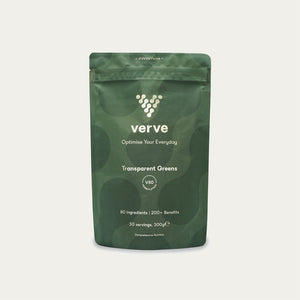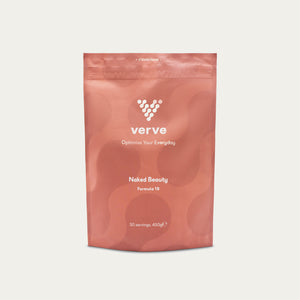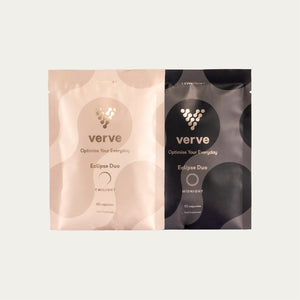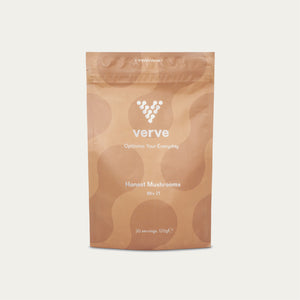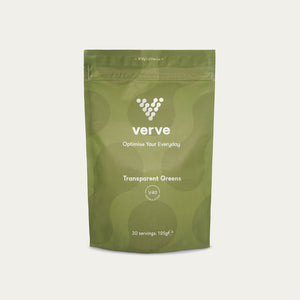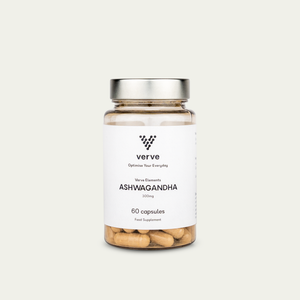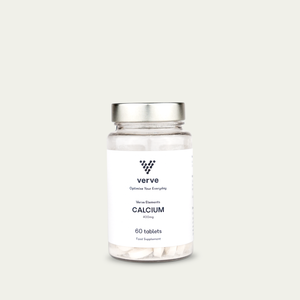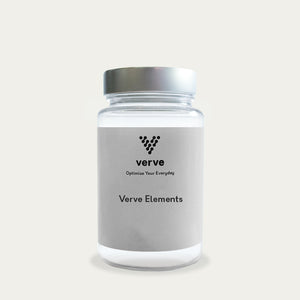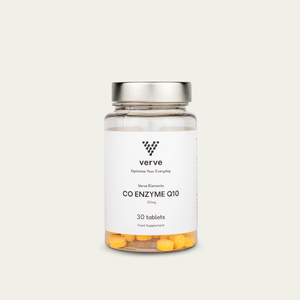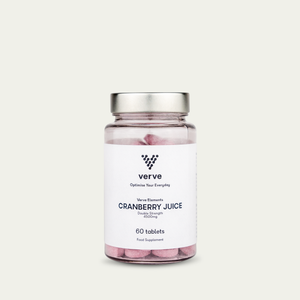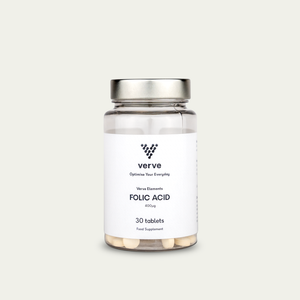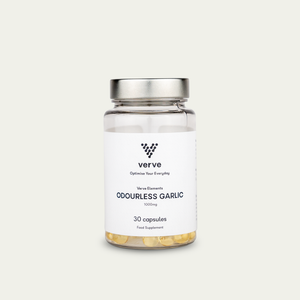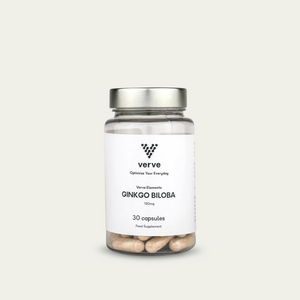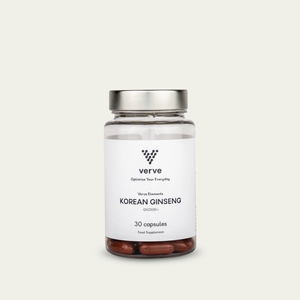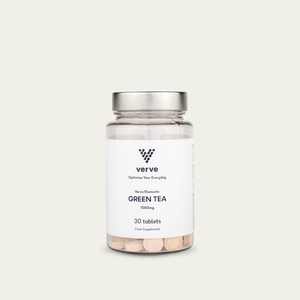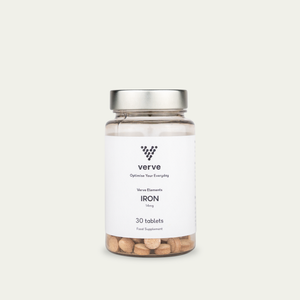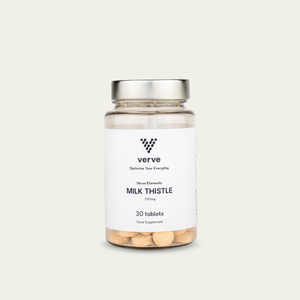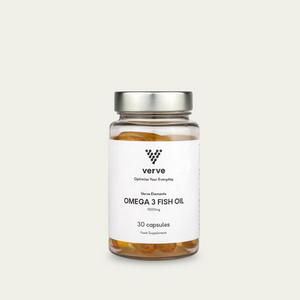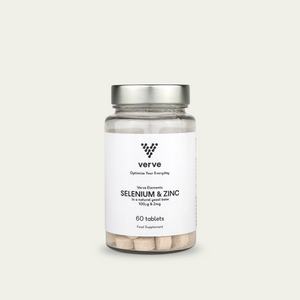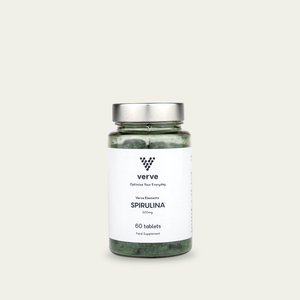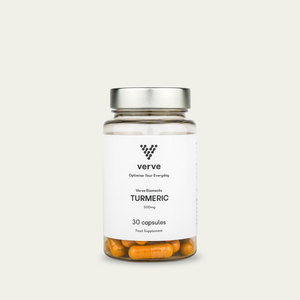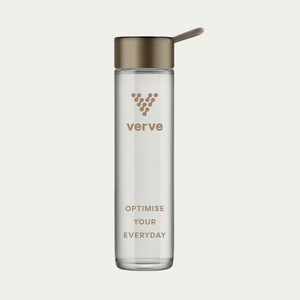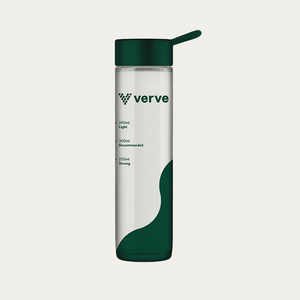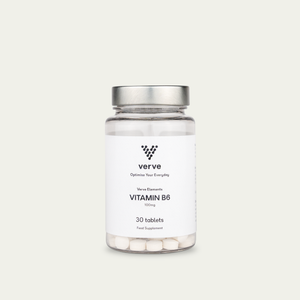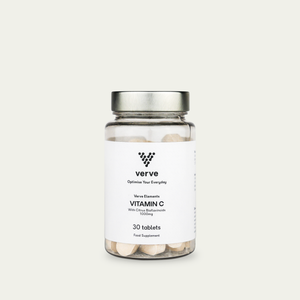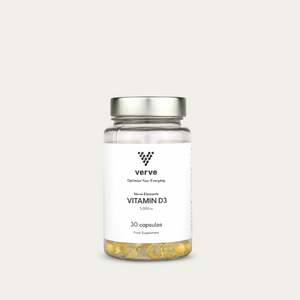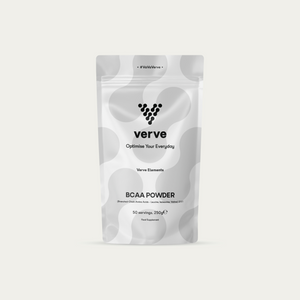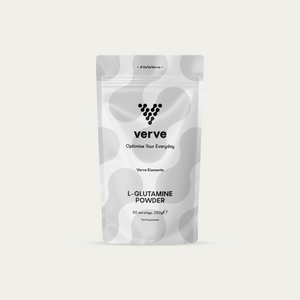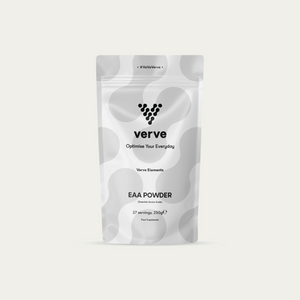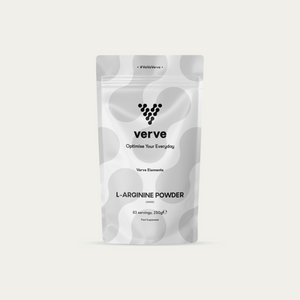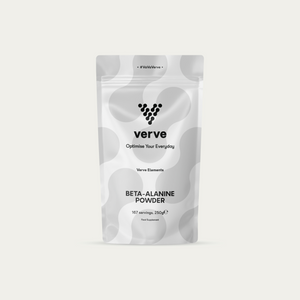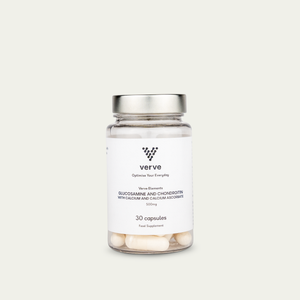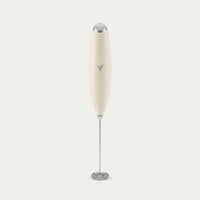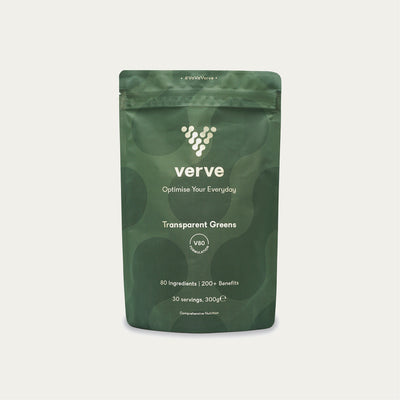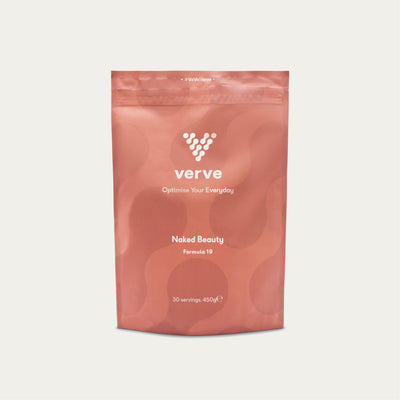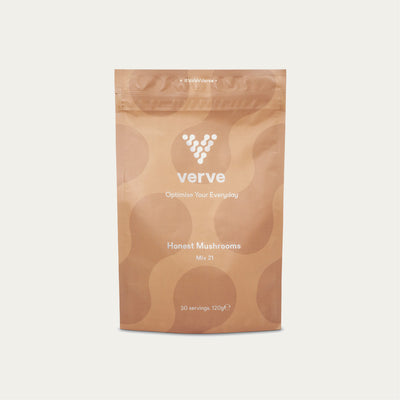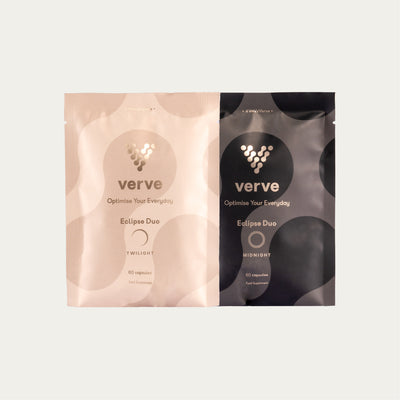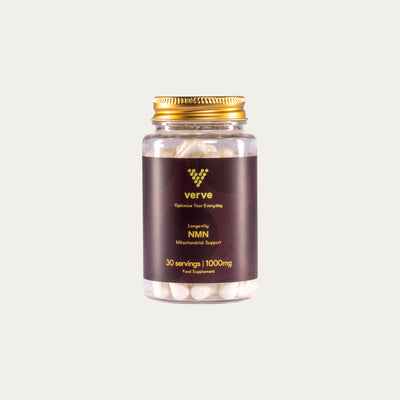Table of Contents
Autrefois réservées aux cuisines asiatiques, les algues séduisent aujourd'hui des millions de personnes dans le monde entier par leur saveur croquante et salée. Cette plante marine est aujourd'hui utilisée à de nombreuses fins médicinales et dans de délicieuses recettes.
Les algues poussent dans les océans et les mers. Les compléments alimentaires à base d'algues sont fabriqués en séchant les algues et en encapsulant leurs riches nutriments.
Pour ceux qui trouvent les algues crues désagréables, les poudres ou les gélules offrent une alternative pratique. Aujourd'hui, nous nous penchons sur les meilleurs compléments alimentaires à base d'algues, en examinant leurs ingrédients, leur provenance et leur profil de sécurité.
Les suppléments à base d’algues sont-ils sûrs ?
Les compléments alimentaires à base d'algues sont absolument sans danger et constituent d'excellents détoxifiants, aides digestives et nettoyants. Le seul risque minime provient de la richesse en iode des algues.
Bien que nous ayons besoin d'iode pour survivre, une trop grande quantité peut être nocive et entraîner une hyperthyroïdie. C'est donc quelque chose à garder à l'esprit... Vous ne voulez pas atteindre 5 fois votre apport quotidien en iode.

Types de suppléments à base d'algues
Les algues sont une plante incroyablement polyvalente et nutritive qui se présente sous de nombreuses formes, chacune possédant ses propres bienfaits. Voici un aperçu des compléments alimentaires à base d'algues les plus populaires à intégrer à votre routine bien-être.
Spiruline
La spiruline est une algue bleu-vert reconnue pour son incroyable teneur en protéines et ses propriétés antioxydantes. Riche en vitamines B, en fer et en manganèse, elle est également riche en compléments alimentaires. Les compléments alimentaires à base de spiruline se présentent souvent sous forme de poudre ou de comprimés et peuvent être un excellent complément aux smoothies ou pris quotidiennement pour soutenir le niveau d'énergie et le système immunitaire.
Varech
Le varech est une algue brune riche en iode, essentielle au bon fonctionnement de la thyroïde. Les compléments alimentaires à base de varech sont disponibles sous forme de poudre, de gélules ou même d'en-cas. Grâce à leur teneur en calcium, ils contribuent à réguler le métabolisme et à soutenir la santé osseuse. Il est toutefois important de surveiller ses apports en raison de leur teneur élevée en iode.
Chlorelle
La chlorella est une algue verte semblable à la spiruline, mais elle est réputée pour sa capacité à se lier aux métaux lourds et à favoriser la détoxification de l'organisme. Ce complément alimentaire, souvent disponible sous forme de poudre ou de comprimés, est riche en protéines, en fer et en vitamines A, C et B12, ce qui en fait un véritable concentré de nutriments pour les végétariens et les végétaliens.
Nori
Surtout connu pour son utilisation dans les sushis, le nori est disponible sous forme de snack séché et également en complément alimentaire. C'est une bonne source de vitamine C, de vitamine A, de potassium et de fibres. Le nori peut favoriser la santé cardiovasculaire et aider à maintenir un taux de cholestérol sain.
Dulse
La dulse est une algue rouge souvent consommée séchée ou en flocons. Riche en potassium, en fer et en acides gras oméga-3, elle peut être saupoudrée sur les plats pour leur apporter un apport nutritionnel et une saveur umami unique.
Mousse de mer
La mousse de mer, ou mousse d'Irlande, est devenue populaire grâce à sa teneur en mucilage, bénéfique pour la santé digestive. Elle regorge également de vitamines et de minéraux tels que l'iode, le potassium, le calcium et le magnésium . Les gels ou poudres de mousse de mer peuvent être ajoutés aux aliments ou pris en complément pour favoriser le bien-être général.
Meilleurs compléments alimentaires à base d'algues : la liste complète
Notre premier choix :
Verve V80 se distingue comme le complément alimentaire à base d'algues le plus complet du marché. Alors que d'autres produits manquent de certaines caractéristiques, comme la transparence ou un mélange complet d'ingrédients, Verve V80 excelle dans tous les domaines : transparence totale, goût délicieux et formule scientifiquement prouvée pour plus de 200 bienfaits pour la santé. Verve V80 offre un excellent rapport qualité-prix.
Découvrez le V80
Les algues sont réputées pour améliorer la santé cardiaque, favoriser la perte de poids et renforcer le système immunitaire grâce aux minéraux et vitamines comme la vitamine A, les vitamines B, la vitamine C, le magnésium, le fer et le calcium.
Nous avons effectué des heures de recherche pour que vous n’ayez pas à le faire et pour vous aider à trouver le meilleur complément d’algues.
Ci-dessous, nous avons répertorié les meilleurs suppléments d'algues pour faire briller votre peau et garder vos organes en bonne santé.
- Verve V80
- Suppléments d'algues et de varech d'Oceangreen Organics
- Santé quotidienne, Seatrition Immune Thyroid Support Pure 12 plantes d'algues entières
- Algues brunes Horbaach Plus
- Extrait d'algues brunes NusaPure
- Algues lyophilisées Seagate Products
- Capsules d'algues brunes Piping Rock
-
Examinons maintenant de plus près chacune de ces marques. Nous explorerons leurs sources d'algues, leurs formules et leurs ingrédients.

9. Algues lyophilisées Seagate Products
Les algues lyophilisées de Seagate sont une source concentrée d'iode, de fibres, de minéraux, de protéines et de chlorophylle.
La posologie recommandée est de trois capsules par jour avec les repas, et une capsule fournit 15 % de la valeur quotidienne suggérée ou 0,02 mg d'iode.
Avantages :
- Une valeur nutritionnelle décente dans chaque portion.
- Bonne quantité de fer et de calcium.
- Des plongeurs récoltent les algues de la marque dans une baie de la côte centrale du Pacifique de la Basse-Californie.
Inconvénients :
- Il ne convient pas aux personnes souffrant d’hyperthyroïdie.
- Certains clients ont dit qu'ils pouvaient goûter les algues, ce qu'ils n'aimaient pas.
- L'odeur naturelle pourrait vous déranger.
- Ne fournit même pas 100 % des VNR d'iode, sans parler des autres nutriments.
8. Capsules d'algues brunes Piping Rock
Piping Rock est connu dans le monde entier pour la production de produits de bien-être de haute qualité, notamment des vitamines et des suppléments.
Les capsules de Piping Rock contiennent de l'extrait de fucoxanthine, un ingrédient clé présent dans le fucus, une espèce d'algue privilégiée pour les suppléments d'algues marines.
La formule est également sans gluten et sans OGM, et comprend de l'extrait de thé vert pour un soutien et une absorption supplémentaires.
Avantages :
- Une formule sûre, puissante et pure.
- Le thé vert ajouté contient 45 % d'EGCG, 75 % de catéchines et 95 % de polyphénols, offrant un niveau élevé d'antioxydants.
Inconvénients :
- C'est un peu plus cher que les autres options du marché.
- Certains utilisateurs trouvent les capsules trop grandes
7. Extrait d'algues brunes NusaPure
Les capsules d’algues brunes NusaPure sont les suivantes sur notre liste.
Nous apprécions également l'ajout d'extrait de poivre noir ou de biopérine, qui améliore le taux d'absorption (un composant que nous avons également inclus dans Verve V80). L'extrait de poivre noir aide l'organisme à absorber les nutriments, un problème courant avec les compléments alimentaires.
Avantages :
- 6 000 mg d'extrait par portion assurent un dosage puissant par capsule (extrait 30:1).
- Offre de nombreux bienfaits pour la santé.
- Excellent rapport qualité-prix : 200 capsules végétariennes durent 200 jours, offrant un approvisionnement à long terme.
- Formulation moderne attribuée à un approvisionnement de haute qualité.
Inconvénients :
- Les effets visibles sur la santé peuvent prendre des semaines.
- Certaines plaintes indiquent que les capsules sont trop grandes
- Se concentre uniquement sur le fucus vésiculeux, donc encore une fois, il manque d'avantages par rapport au Verve V80. .
6. Horbaach Algues Brunes Plus
Le prochain produit sur notre liste est les capsules d’algues brunes de Horbaach.
L'algue brune, communément appelée fucus vésiculeux, est une algue marine salée.
Ce complément à base d'algues marines met en avant la fucoxanthine, un antioxydant d'origine naturelle. Parmi les ingrédients utilisés, on trouve du stéarate de magnésium végétal et de la poudre de riz, un élément à prendre en compte.
Il ne contient pas non plus beaucoup d'ingrédients, comme vous pouvez le voir sur l'étiquette adjacente.
Pas idéal si vous recherchez un supplément qui inclut divers aspects de votre santé.
Avantages :
- La marque Horbaach fabrique des ingrédients de première qualité et testés en laboratoire.
- L'extrait de thé vert dans les ingrédients offre 95 % de polyphénols et d'EGCG.
- De nombreux utilisateurs ont également perdu du poids après avoir pris ce supplément de fucus.
Inconvénients :
- Trop d'ingrédients de remplissage
- Il n'y a pas une large gamme d'ingrédients, donc il n'offrira pas beaucoup d'avantages que proposent des concurrents comme Verve V80.

5. Seatrition, mélange océanique quotidien
Notre prochain choix est Seatrition, une autre formule végétalienne et entièrement naturelle pour les acheteurs conscients, offrant un nombre de capsules plus généreux : 180 dans un seul flacon.
Voici les informations nutritionnelles :
Il est important de souligner que ce produit contient un mélange exclusif, comme le montre l'image ci-dessus. Cela signifie que la quantité de chaque ingrédient n'est pas divulguée, ce qui n'est pas idéal.
De plus, la formule contient également des ingrédients d'origine végétale et de l'iode végétal, comme le fucus canalisé, le maërl, le kombu, la mousse d'Irlande, le fucus noué, la laitue de mer, l'aneth, le fucus vésiculeux, la lotte, le dulse, le nori chinois et le fucus.
Avantages :
- Aide à la gestion du poids.
- Cette formule regorge de fer, de magnésium, de vitamines, de cuivre, d’antioxydants, de fibres solubles, d’acides gras oméga-3 et d’autres nutriments.
- Les capsules sont faciles à absorber.
Inconvénients :
- Les utilisateurs doivent prendre une capsule après chaque repas, ce qui peut être gênant.
- Contient des mélanges exclusifs/ne divulgue pas le dosage des ingrédients individuels.

4. Varech biologique - Cornish Seaweed Company
La Cornish Seaweed Company propose un complément alimentaire à base de varech biologique bénéfique pour la fonction thyroïdienne, le métabolisme et le bien-être général. Ce complément, fabriqué à partir de varech biologique récolté à la main de manière durable, est une source naturelle d'iode. Il favorise la production d'hormones thyroïdiennes, le métabolisme énergétique, les fonctions psychologiques, la santé du système nerveux et le maintien d'une peau normale. Il est végétalien, sans OGM, sans produits chimiques, sans gluten et sans soja. Parmi ses ingrédients, on trouve de l'algue thongweed et de l'algue oarweed, encapsulés dans une capsule de cellulose végétale, témoignant de l'engagement de l'entreprise en faveur de pratiques éthiques et durables.
Avantages :
- Riche en iode pour la fonction thyroïdienne et le métabolisme.
- Végétalien, sans OGM, sans produits chimiques, sans gluten et sans soja.
- Issu de sources éthiques et durables avec un emballage recyclable.
Inconvénients :
- Spécifique aux besoins alimentaires de chaque individu, il ne s'agit pas d'une solution universelle.
- Nécessite un apport quotidien constant pour bénéficier de ses bienfaits.
- Prudence recommandée pour les personnes ayant des problèmes de thyroïde.
- Une portion de 2 g ne contient probablement pas la plupart des vitamines, minéraux, acides aminés, etc. proposés par des concurrents comme Verve V80.
3. Les suppléments d'algues biologiques pures
Les suppléments d'algues biologiques pures d'ishga UK sont fabriqués à partir d'algues biologiques, offrant un mélange naturel de nutriments bénéfiques pour la santé globale.
Riches en vitamines, minéraux, acides aminés et acides gras essentiels, elles constituent un complément alimentaire complet. L'ingrédient clé, l'algue Ascophyllum nodosum des Hébrides, est sélectionnée pour sa richesse en iode, qui contribue à la fonction thyroïdienne, au métabolisme, aux fonctions cognitives et à la santé de la peau.
- Contient des minéraux, des vitamines, des acides aminés et des acides gras essentiels.
- Excellente source d’iode pour la santé de la thyroïde et du métabolisme.
- Vegan, sans agents de remplissage ni liants artificiels.
- Favorise la santé cognitive, la santé de la peau et le soutien du système nerveux.
Inconvénients :
- Limité au profil nutritionnel des algues, peut nécessiter des suppléments supplémentaires pour une nutrition complète.
- Ne divulgue pas les dosages
2. Océan et algues vertes
Le deuxième sur notre liste est Ocean & Green Seaweed, qui contient 54 ingrédients.
Les 54 nutriments font des merveilles pour les femmes ménopausées et pour toute personne ayant besoin d'un apport en iode. Sa formule favorise une belle peau, une meilleure digestion grâce à sa teneur élevée en fibres, un système immunitaire renforcé, une diminution du stress et une régulation hormonale optimale.
Avantages :
- Les algues contenues dans ces capsules ont été récoltées à la main dans les océans de Nouvelle-Zélande. Cela garantit une provenance pure et de nombreux bienfaits pour la santé.
- Un contenant contient 60 capsules végétaliennes et biologiques.
- Il contient un pourcentage relativement élevé d’iode pour aider les personnes qui ont besoin d’un soutien des glandes surrénales et de la thyroïde.
- Contient 54 oligo-éléments, minéraux et vitamines.
Inconvénients :
- Les capsules ne conviennent pas aux personnes ayant un pourcentage d’iode normal ou une thyroïde qui fonctionne bien.
- Contient des mélanges exclusifs/ne divulgue pas tous les nutriments
1. Verve V80
Commençons par aborder le sujet tabou. Avons-nous placé Verve en tête parce que c'est notre produit ?
Absolument pas ! Cependant, la formule nutritionnelle de V80 comprend de la spiruline et du varech, deux aliments issus d'algues.
De plus, le Verve V80 contient 78 autres ingrédients. Voici une liste simple des principaux ingrédients :
- 100 % VNR de vitamines essentielles : Verve V80 garantit que vous recevez l'apport quotidien recommandé complet en vitamines essentielles, soutenant tout, de la fonction immunitaire aux niveaux d'énergie, le tout dans une seule boisson pratique.
- Adaptogènes comme l'Ashwagandha et le Panax Ginseng : Découvrez les bienfaits anti-stress de l'Ashwagandha et les effets énergisants du Panax Ginseng, tous deux inclus dans Verve V80 pour aider votre corps à s'adapter et à prospérer dans le monde trépidant d'aujourd'hui.
- Extraits de fruits : Notre boisson verte est infusée d'extraits de fruits, chargés d'antioxydants et de douceur naturelle, enrichissant votre alimentation avec des nutriments essentiels tout en faisant plaisir à votre palais.
- Légumes verts et superaliments comme le chou frisé, le varech, la spiruline, l'herbe d'orge et plus encore : découvrez un mélange de légumes verts et de superaliments riches en nutriments avec Verve V80. Du chou frisé détoxifiant au varech riche en iode en passant par la spiruline riche en protéines, chaque portion assure à votre corps un apport complet en nutriments essentiels.
- Probiotiques : Avec Verve V80, renforcez votre santé intestinale avec une dose quotidienne de probiotiques qui favorisent un système digestif équilibré et améliorent l'absorption des nutriments.
- + Bien plus encore : Au-delà de ces fonctionnalités clés, Verve V80 propose une gamme complète d'ingrédients supplémentaires améliorant la santé pour vous assurer d'être bien équipé pour un mode de vie plus sain.

Il est rempli d’ingrédients qui seront bénéfiques pour votre santé.
Tous ces superaliments, minéraux, vitamines, adaptogènes, antioxydants et probiotiques unissent leurs forces pour vous offrir plus de 200 bienfaits pour la santé :
- Métabolisme plus rapide.
- Meilleur système immunitaire.
- Amélioration de la vision ou de la santé oculaire.
- Processus de digestion plus fluide.
- Un sommeil paisible.
- Mise au point plus nette.
- Soutien à la santé cardiaque.
- Réduisez vos niveaux de stress.
- Anti-inflammatoire.
- Les antioxydants avancés inversent les signes du vieillissement.
- Une peau et des cheveux plus jeunes.
- Meilleur fonctionnement cérébral ou cognitif.
- Niveaux d'énergie élevés.
Notre complément alimentaire en poudre, riche en bienfaits pour le bien-être, est également plus facile à consommer que les compléments alimentaires à base d'algues en gélules, dont nous parlerons bientôt. Verve V80 est apprécié pour les raisons suivantes :
- Chaque ingrédient est sain, soigneusement choisi et approuvé par les meilleurs nutritionnistes européens.
- L'infusion de vrais fruits donne un goût tentant.
- Verve ne fait aucun compromis sur la transparence : aucun mélange exclusif ni ingrédient nocif.

Guide d'achat des meilleurs compléments alimentaires à base d'algues
Chacun de ces produits possède ses propres caractéristiques et ingrédients. Mais comment choisir ?
Nous avons répertorié quelques éléments à prendre en compte lors du choix du meilleur supplément d’algues marines.
Dosage
Le dosage du supplément de varech que vous devez prendre dépend de votre état de santé actuel et de vos besoins spécifiques.
Par exemple, si votre thyroïde fonctionne mal ou si vous manquez d’iode, vous devriez consommer une plus grande quantité d’iode, mais si tel est le cas, il vaut mieux consulter d’abord un professionnel de la santé.
Pureté et qualité
Recherchez des produits avec des tests tiers pour garantir la qualité, par exemple Verve V80 est accrédité par Informed Sports , ce qui signifie qu'il subit des tests tiers pour garantir qu'il n'y a pas de médicaments améliorant les performances avec des effets secondaires désagréables, dont une étude a révélé que jusqu'à 28 % des suppléments contiennent.
Un autre élément important à prendre en compte est la pureté et la sécurité de la formule.
Il est courant que les capsules contiennent d'autres ingrédients que les algues, comme des protéines de riz, de la cellulose et de l'iode végétal, comme mentionné précédemment. Vérifiez la liste complète des ingrédients pour vous assurer qu'ils ne sont pas nocifs et qu'ils n'interagissent pas avec les compléments alimentaires que vous prenez.
Informations sur les allergènes
Vérifiez les informations sur les allergènes sur l’étiquette du produit pour vous assurer qu’il est sans danger pour vos besoins alimentaires.
Certains suppléments d’algues peuvent contenir des allergènes courants comme le gluten, le soja ou les noix, alors examinez attentivement la liste des ingrédients.
Coût
Le prix d'un supplément d'algues varie en fonction de facteurs tels que la marque, le nombre et le type d'autres ingrédients, l'espèce d'algues, la puissance, le niveau de sécurité et la forme du supplément.
Gardez votre budget à l'esprit, mais n'oubliez pas que l'option la moins chère peut compromettre la sécurité ou l'efficacité. Investir dans votre santé est important.
Recherche clinique et preuves
Recherchez des produits soutenus par des recherches scientifiques et des études cliniques pour être sûr de leur efficacité et de leur sécurité.
Recherchez des marques qui partagent de manière transparente des informations sur leurs dosages, afin que vous puissiez consulter les recherches cliniques sur les avantages et les effets.
Goût et appétence
Finalement, personne ne veut d’un produit qui a mauvais goût.
Certains compléments alimentaires à base d'algues peuvent avoir un goût fort ou désagréable, ce qui peut influencer votre envie d'en prendre régulièrement. Privilégiez les compléments aux saveurs agréables ou facilement masquées par d'autres aliments ou boissons.
La prise en compte de ces facteurs vous aidera à affiner vos options vers des produits sûrs et fiables, réduisant ainsi votre liste de « suppléments d’algues à considérer » à quelques options seulement.
Meilleurs compléments alimentaires à base d'algues : questions fréquentes
Nous comprenons que vous puissiez avoir des questions sur les suppléments d’algues, voici donc quelques réponses aux questions courantes :
Les capsules d’algues sont-elles aussi saines que les algues fraîches de la mer ?
Les capsules d'algues marines sont faciles à consommer et offrent une valeur nutritionnelle quasi identique à celle des algues fraîches. Les fabricants produisent généralement les capsules à partir d'algues séchées et moulues, en standardisant les algues encapsulées pour y inclure des quantités spécifiques de nutriments. Elles constituent également une source concentrée de nutriments et d'autres ingrédients sains.
Le supplément de wakamé est-il différent des autres suppléments d’algues ?
Le wakamé est riche en minéraux comme le fer et le calcium, ainsi qu'en diverses vitamines. Ces nutriments favorisent la santé de la peau, des ongles et des cheveux. Comparé à d'autres algues, le wakamé est particulièrement efficace pour traiter des problèmes de santé spécifiques.
Un supplément de varech est-il différent d’un supplément brun ?
Les compléments alimentaires à base d'algues brunes, comme ceux à base de kombu et de wakamé, contiennent généralement des concentrations plus élevées de deux composés appelés fucoïdane et fucoxanthine. Les compléments alimentaires à base de varech, quant à eux, sont plus riches en minéraux et en iode.
Les suppléments d’algues peuvent-ils aider à perdre du poids ?
Certaines études suggèrent que les compléments alimentaires à base d'algues pourraient favoriser la perte de poids en procurant une sensation de satiété et en réduisant l'absorption des graisses. Cependant, la perte de poids n'est pas leur objectif principal, et des études supplémentaires sur le sujet sont indispensables.
La prise de suppléments d’algues a-t-elle des effets néfastes ?
La plupart des gens peuvent prendre des suppléments d’algues sans problème s’ils suivent les instructions.
Cependant, certaines personnes peuvent être sensibles à l'iode ou y souffrir d'allergies. De plus, certains compléments alimentaires peuvent contenir de fortes doses d'iode ; dans ce cas, il convient d'être prudent.
Bien que notre liste ait abordé de nombreux suppléments d'algues fiables, Verve V80 vole toujours la vedette en raison de sa transparence à 100 %, de ses 80 ingrédients robustes et approuvés par des professionnels, de son goût naturellement délicieux et de son prix abordable.
C'est aussi très facile à consommer. La poudre se mélange facilement et s'intègre parfaitement à vos smoothies ou autres boissons.
Bénéficiez de plus de 200 avantages pour la santé, tels que :
Améliore la santé intestinale.
Vitamines essentielles pour la défense.
Vitamines pour une santé oculaire optimale.
Vitamines pour la peau et les cheveux.
Détente pour un sommeil réparateur.
Nutriments pour la clarté mentale.
Combattre les radicaux libres.
Réduit l'inflammation.
Augmenter l'énergie naturelle.
Soutenir la santé cardiovasculaire.
Améliore la clarté mentale et la mémoire.
Commencez avec Verve et ressentez vous-même la différence.

